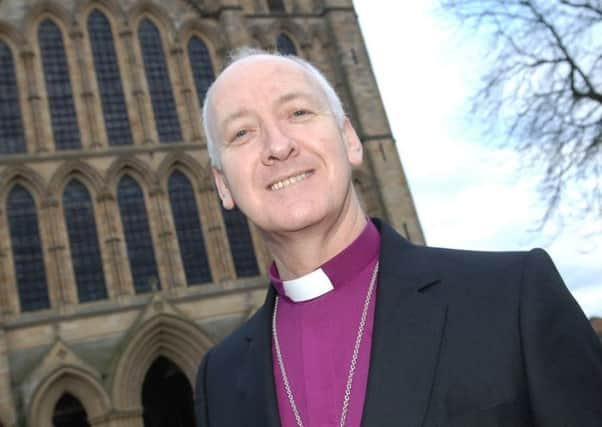Nick Baines: The Church and how it is forging new friendships


Some people on hearing that seven Anglican bishops were to meet in Yorkshire for a week might assume they were going to be at each others’ throats over divergent views of ethical issues such as sexuality. It will probably come as a disappointment to them that this is not the case.
When the (Church of England) Diocese of Leeds was created at Easter 2014 from the three historic dioceses of Bradford, Ripon & Leeds and Wakefield, the new entity inherited a number of long-established links with dioceses around the world. We weren’t sure how to take these forward and develop them further in a new diocese where inherited affections might prove difficult to expand. So, we kept them going while taking time to get everything else established in order later to address the future.
Advertisement
Hide AdAdvertisement
Hide AdThe five Anglican links are with Sudan (five dioceses), Tanzania (three dioceses), Sri Lanka (Colombo), Pakistan (Faisalabad) and USA (Southwestern Virginia). Then we have partnership links with Sweden (Skara which is Lutheran) and the Kirchenkreis Erfurt in Germany. It is a wide spread of countries and cultures, and some of these links go back thirty or forty years. Relationships have been forged, exchanges enjoyed and mutual lessons learned.
Clearly, one of the best ways to understand your own culture is to look at it through the eyes of another culture. The resulting perspective might not always be comfortable, but it will always be instructive. And so it proved when I invited seven bishops to come from these countries for a five-day retreat together with me and my five area bishops at Parcevall Hall in the beautiful Yorkshire countryside.
My initial emailed invitation met with an enthusiastic acceptance from all. We worked on the logistics and programme over the last few months before we all convened at my house in Leeds last Saturday. We celebrated our unity at Wakefield Cathedral on Sunday. We will conclude the visit on Sunday afternoon at Leeds Minster and a trip to meet the Archbishop of Canterbury on Monday.
What is remarkable is the openness and honesty with which our conversations began and continued. Covering a number of themes with which we all have to grapple in our different contexts in a complex and increasingly dangerous world, we worked hard not only at speaking honestly, but also listening and hearing clearly. These were conversations born of friendship, trust and mutual commitment. It was a privilege to be there.
Advertisement
Hide AdAdvertisement
Hide AdThe Anglican Communion sounds like a single entity. However, a bit of questioning soon makes it clear that a bishop in England operates in a different culture and context from a bishop in Sudan or USA, and that the polity of the different churches is not identical in each case. Bishops have power in Tanzania that they do not have in England – and the established nature of the Church of England means that we have to work in a way that is unique for Anglicans across the world (and not easily understood by those who inhabit a different cultural space).
So, when it comes to the hard issues of ethics – specifically regarding money, sex and power – it is easier to explore them having acknowledged the diversity of cultures we inhabit, churches we shape, and polities we have to work. We live in different worlds, yet inhabit the same planet.
At the heart of Christian faith is the call to reconciliation in a world that finds it easier to fragment than to pay the sacrificial price of hanging on to those who are different. And although the bishops who met this week face different challenges and opportunities, have diverse priorities in the practicalities of leading churches in diverse cultural and political contexts, we were united in our commitment to one another under God.
We prayed together, laughed a lot, questioned each other endlessly, and spent an afternoon at Bolton Priory. During this latter visit we stood in the ruins of a church that was no stranger to political destructiveness and the contradictions of human passions over the last thousand years or so. But, we also stood in the living building that brings people together for worship and Christian challenge and encouragement. We are still here, centuries after it was thought that the church had reached its end. Faithful Christian presence and outreach continues in a world a million miles apart from the one that saw the church built by Augustinian priests.
Advertisement
Hide AdAdvertisement
Hide AdNow our week together is coming to an end, we will need to work out how we proceed as partner dioceses from here. Different partnerships might not be uniform in the future, but we want to explore whether and how to optimise the potential for multi-lateral links rather than simply bilateral ones. For example, what might it look like for Leeds, Sudan, Sri Lanka and the USA to work together for the mutual support of each other? How can we work out a system for enabling clergy and parishioners from different worlds to visit each other, serve one another and learn some unique lessons from one another?
This is the challenge for us now. Our worlds have collided, but we have subsequently spun off into new directions and renewed relationships. It is very exciting.
The Right Reverend Nicholas Baines is Bishop of Leeds.